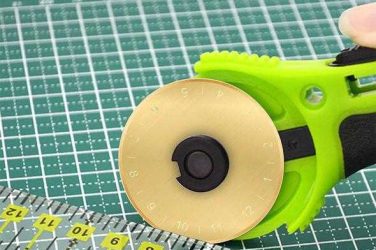Whether it’s your first or third child, bringing home your precious newborn can be a rollercoaster ride. Women’s bodies are truly incredible, aren’t they? Even amid all of the overwhelming newness of caring for a baby, you may notice some changes in your body. During pregnancy, your body grows and stretches in new ways, but postpartum is another phase in which you’ll likely experience some changes you weren’t expecting.
Although our bodies are amazing, they don’t always bounce back right away – it takes some time. One of the changes you might notice is that you have a difficult time holding your bladder. Women are often uncomfortable discussing this with their doctors because it can be embarrassing, but the truth is many women have problems with urinary incontinence after childbirth. Here’s what you need to know about this incredibly common issue.
What Exactly Is Postpartum Urinary Incontinence?
The momentary loss of bladder control that occurs after childbirth is called postpartum urinary incontinence. After delivery, a woman may experience this when she sneezes, laughs, coughs, or does another strenuous activity. It may seem alarming at first, but don’t worry! In most cases, it is not a serious problem. Disposable incontinence pads are an easy and convenient way to manage this issue.
How Common is Incontinence After Childbirth?
The momentary “leak” you’ve been experiencing is extremely common in women after pregnancy and giving birth. In fact, one in three women who have had a baby may experience leakage at some point. To allow the baby room to grow, the muscles around the bladder and pelvis have weakened during pregnancy and delivery. Additionally, as your uterus shrinks after delivery, it sits directly on the bladder, compressing it and making it more difficult to hold it in. For some women, it can take up to six months to regain bladder control as it was before pregnancy. Fortunately, there are steps you can take to get it back faster.
What Can You Do to Improve Bladder Control?
After giving birth, there are several ways you can gradually improve urinary incontinence. Here are a few you can easily do on your own.
Practice doing Kegels. Exercises such as Kegels strengthen the pelvic floor muscles, which support the uterus, bladder, small intestine, and rectum. The best part is that you can do Kegel exercises, also known as pelvic floor muscle training, any time and anywhere you want. One way you can learn how to do Kegels is by contracting the pelvic floor to stop the urine flow. Give it a try. If you manage to stop the urine flow, you now know how to contract your pelvic floor!
Wear pads. Wear an incontinence pad postpartum (not tampons and not period liners or period pads) while you work on your Kegels and bladder control. Choose an incontinence product that is specially designed to manage urine leakage. They can be worn with your underwear and are crafted to deliver maximum discretion and comfort. In the event of an accident, the pad will keep you and your clothes dry.
Slowly drop excess weight. Safely losing some of the additional pregnancy weight you gained can be beneficial. Sometimes extra weight can put more pressure on your bladder and pelvic floor, causing you to leak more.
Drink plenty of water. Although it might seem counterproductive, not drinking enough water can adversely affect your body. It’s possible that dehydration can result in urinary tract infections and constipation. In turn, constipation can increase pressure on your bladder.
Learn to control your bladder. Try to urinate every 30 minutes and then extend the time between when you have to go each day. The goal is to increase the amount of time between emptying your bladder and the amount of fluid your bladder can hold. Doing so can diminish leakage and the sense of urgency associated with the problem. Throw on an incontinence pad before you leave the house to prevent any surprise leaking!
Seek help. If you are past the point of “normal” postpartum healing but still have urinary incontinence, speak to your doctor. If necessary, they will guide you through the next phase of treatment.
Final Thoughts
Keep in mind that this is a normal change to your body after giving birth. Pregnancy and childbirth put a lot of strain on a woman’s body! It’s only natural that you might experience a few changes on your journey to healing; you don’t need to feel embarrassed or ashamed.
Giving birth can be challenging enough without having to worry about leaking. It’s important to remember that you are not the only one who experiences incontinence after childbirth. Even though it is not something you should “just live with,” recognizing that it is a common problem can greatly help determine a solution. Finding the right product is also essential. In any circumstance, do not settle for any old ordinary sanitary product. Use a product specifically designed for bladder incontinence.














